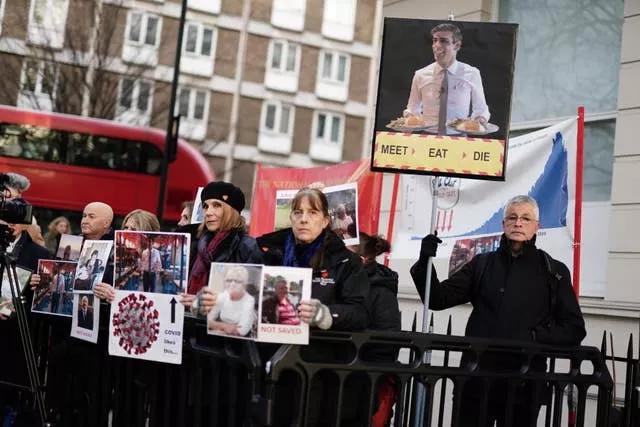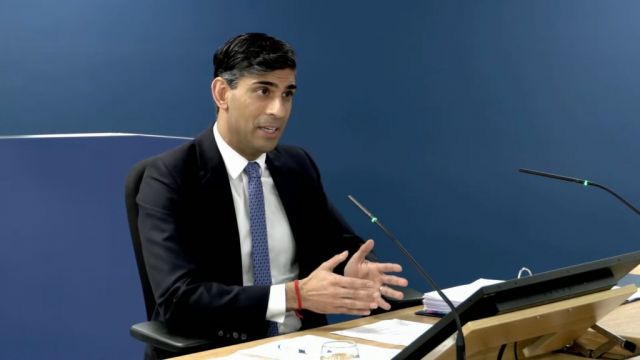UK prime minister Rishi Sunak said he is “deeply sorry to all those who lost loved ones” during the pandemic as he opened his day-long evidence to the UK Covid-19 Inquiry.
Mr Sunak told chair Baroness Hallett it is “important that we learn the lessons so that we can be better prepared in the future”.
The Downing Street incumbent served as UK chancellor during the coronavirus outbreak and was responsible for implementing the furlough scheme and the Eat Out To Help Out discount hospitality scheme.
After being sworn in at the west London hearing on Monday, Mr Sunak addressed the suffering experienced by bereaved families during the pandemic.
He said: “I just wanted to start by saying how deeply sorry I am to all of those who lost loved ones, family members, through the pandemic, and also all those who suffered in various different ways throughout the pandemic and as a result of the actions that were taken.
“I’ve thought a lot about this over the past couple of years.
“It is important that we learn the lessons so that we can be better prepared in the future.
“It is in that spirit and with enormous respect for all of those who are affected that I’m here today.
“I look forward to giving evidence in the spirit of constructive candour to help the inquiry with its deliberations.”

The evidence session on Monday has kicked off a crucial week for Mr Sunak as he faces a crunch vote on his Rwanda legislation on Tuesday as he looks to fulfil his “stop the boats” pledge.
After providing his apology to the Covid inquiry, the Conservative Party leader was questioned by lead counsel Hugo Keith KC about why he had not given the inquiry access to WhatsApp communications from around the time of the pandemic.
Mr Sunak said it was because he had changed his phone “multiple times over the last few years” and that he was “not a prolific user” of WhatsApp.
He said WhatsApp was used “primarily” for communicating with his private office and “anything that was of significance” in those conversations would have been “recorded officially by my civil servants”.
Mr Sunak denied he had described there being a “clash” between public health and the economy while dealing with the virus.

As chancellor, he said he wanted to ensure then prime minister Boris Johnson “had the best possible advice” when it came to understanding the “economic impact or consequences of some of the decisions that he was having to make”.
He added: “It wasn’t – I didn’t ever describe it as – a clash just between public health and economics. I think that is to think about it in far too narrow a way.”
Mr Johnson appointed Mr Sunak as chancellor in February 2020, only a month before the first lockdown was ordered.
Mr Sunak said he did not know Mr Johnson well at the time but that, when handling the pandemic, he “saw the prime minister probably more than I saw my own wife”.
Mr Sunak is giving evidence as part of Module 2 of the inquiry, which is looking at decision-making during the pandemic.
His appearance follows two days of evidence given by Mr Johnson last week, with former health secretary Matt Hancock and Mr Johnson’s former chief adviser, Dominic Cummings, among those to have addressed the hearing.
As well as Mr Keith, lawyers representing bereaved families from the four UK nations will also question Mr Sunak on Monday, as will long Covid groups and the Trades Union Congress.







